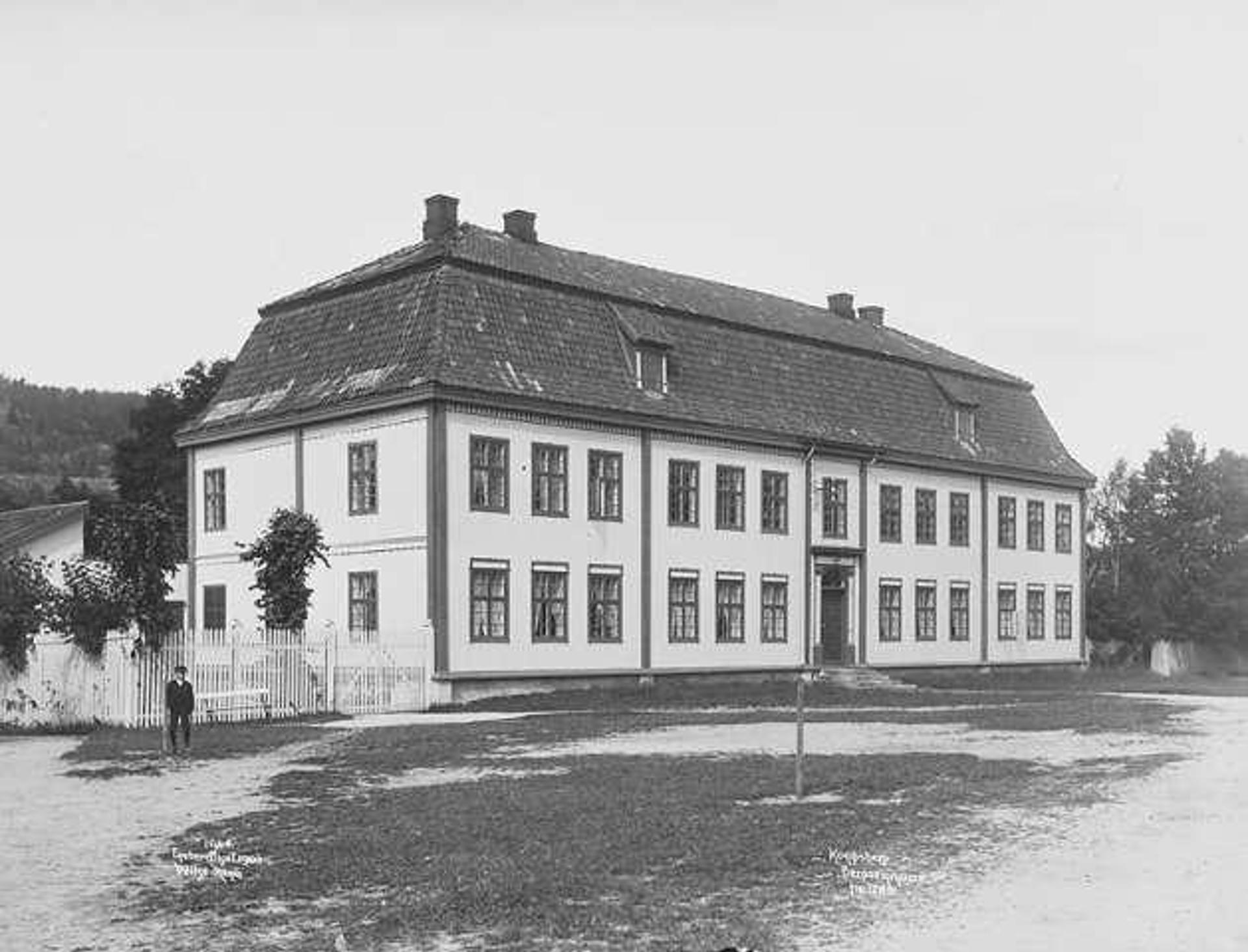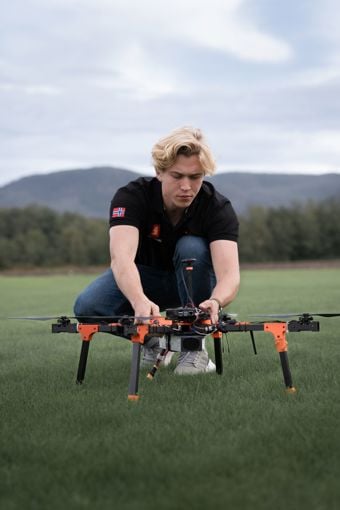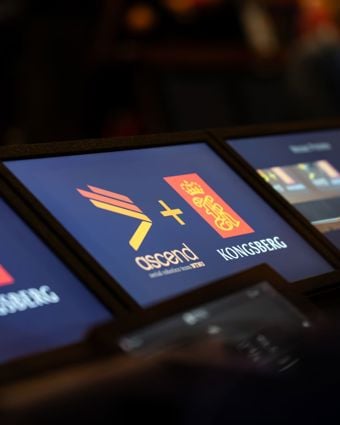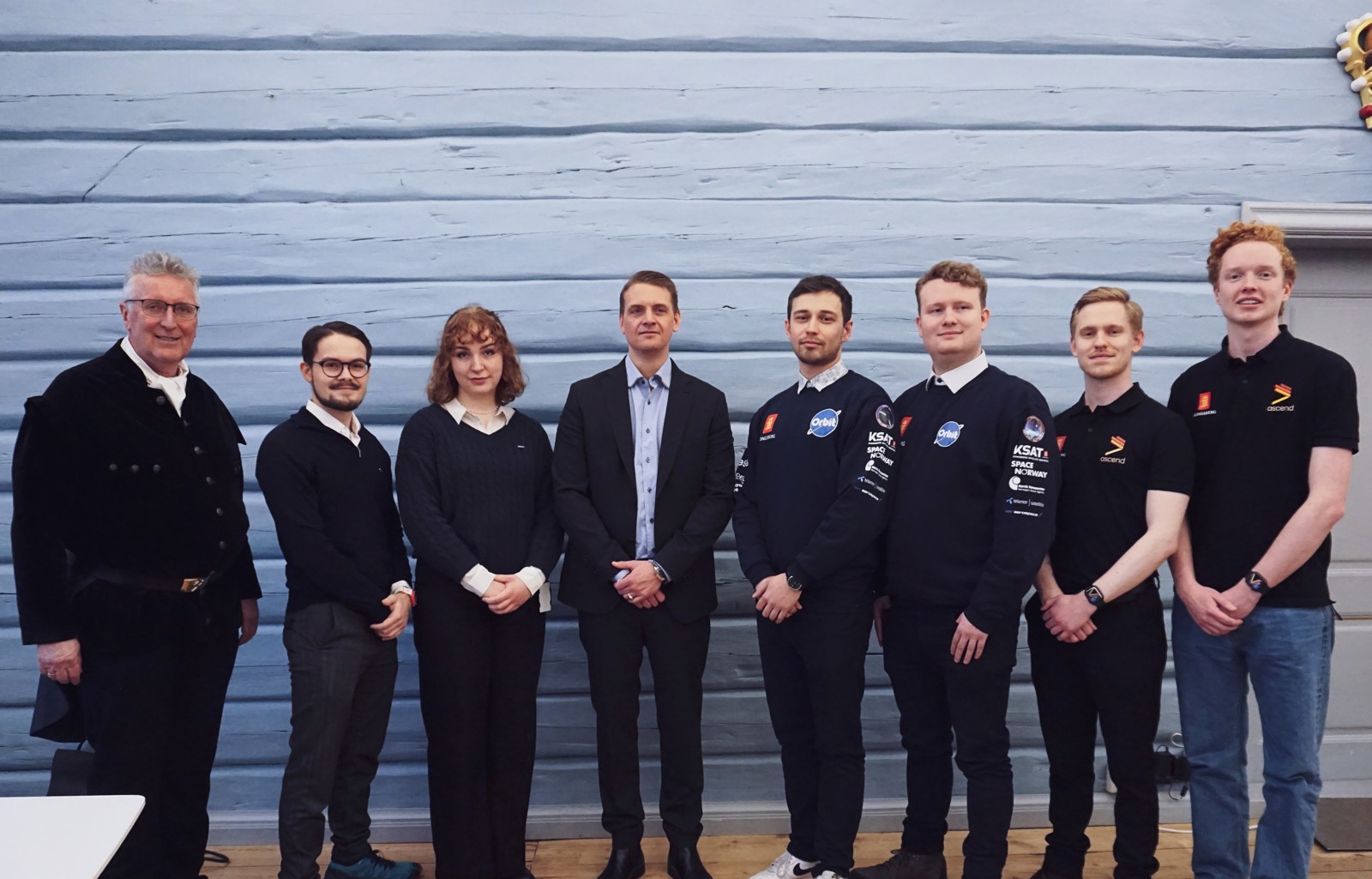
Revitalized Collaboration with Future Engineers and Technologists
Kongsberg Defence & Aerospace (KONGSBERG) has signed agreements with student projects Ascend NTNU, Orbit NTNU, and USN Horizon. On Wednesday, January 24, representatives from KONGSBERG and the student projects met for the official signing.
-
Text:Amanda Chapman-Stavn / KONGSBERG
Photo:Amanda Chapman-Stavn / KONGSBERG
The signing itself took place in historic surroundings – at the venerable “Bergseminaret" in Kongsberg and was conducted in three parts: the continuation of the agreement for Ascend NTNU, the continuation of the agreement for Orbit NTNU, and a new agreement for the newly established USN Horizon.
On the opening day of Kongsberg's 400th anniversary, Ørjan Stengelsrud, Executive Vice President Business Support, welcomed the representatives, while also emphasizing the importance of student collaboration and practical experience alongside studies.
"Collaboration with the industry ensures that students can complete their projects, while also giving us the opportunity to establish close and robust relationships with the engineers and technologists of the future," says Stengelsrud, adding: "I am impressed by the initiative shown by the students. They use their free time to work on projects that provide practical engineering experience. And with striking results."
Ever-Growing Ambitions
The student organizations "Ascend", "Orbit", and "Horizon" develop first-class products and solutions, and actively participate in international competitions with drones, satellites, and rockets. They are continually evolving with ever-growing ambitions.
The combination of fresh perspectives and established knowledge forms a powerful alliance, where both parties benefit from a shared vision and mutual goals.
The agreements are a two-year commitment, and in addition to financial support, professional assistance and technical support will be crucial factors in building strong bridges between KONGSBERG and the engineers of the future.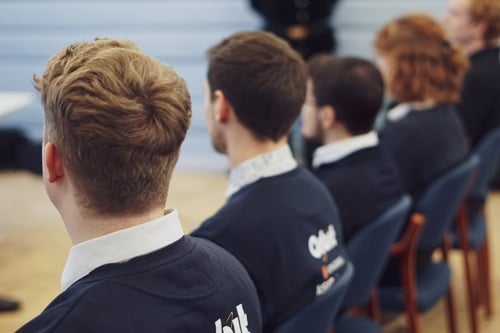
Mutual Benefit
"The students representing Ascend, Orbit, and Horizon are an extremely talented group that we are proud to collaborate with. As a large technology conglomerate, it's important for us to facilitate knowledge sharing and assist in areas where we can. This is not only to strengthen the field but also because we see an ever-increasing need for technologists in the future," says Stengelsrud.
There is no doubt that the agreements are highly valued.

"Without KONGSBERG, we would not have been able to deliver at this level," says Jacob Andreas Reistad, Chief Operating Officer of Orbit. He is supported by both Ascend and Horizon. It's not just about the financial resources, but also the deep technical expertise, technical assistance, and access to production facilities and necessary equipment.
USN Horizon
Since its inception in September 2023, USN Horizon has been working to assemble a team of students from all academic disciplines at the USN campus in Kongsberg. They have students from all engineering fields, systems, and business school. Their goal is to participate in an international rocket competition in 2024, more precisely EUROC 24, which will be held in Portugal in October.
Ascend NTNU
Ascend NTNU was founded in 2015 and develops and builds autonomous drones. Since its inception, Ascend has won several prestigious awards in various competitions. Most recently, in 2023, Ascend won IARC mission 9 after four years of competition against prestigious universities from around the world.
This year's goal is participation in the international competition SUAS (Student Unmanned Aerial Systems) in California in June. Here, students are required to design, build, and demonstrate an unmanned aerial vehicle capable of autonomous flight and navigation, remote sensing via onboard payload sensors, and execution of a specific set of tasks. The competition has been held annually since 2002, and last year, Ascend secured a 9th place among 72 other universities worldwide.
Recently, the Ascend team completed a "concept review" with technical support from, among others, KONGSBERG, and is now ready to start building the drone they will compete with.
Orbit NTNU
The main goal of Orbit, founded in 2018, is to train future talents for the space industry and design, builds, and operates small satellites. In 2022, SelfieSat, a 2U cubesat meant to test new technical limits, was launched. As for writing, it is taking selfies from space.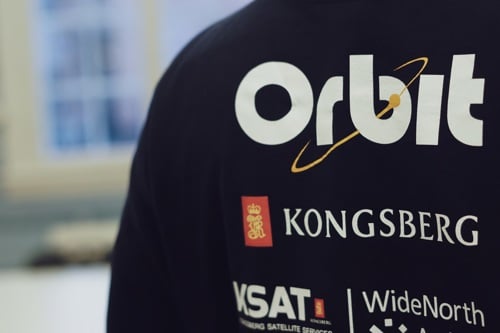
Over the last year, Orbit has developed and completed its first satellites, collaborating with various industry players, FramSat-1 and FramSat-1.5. A project developed together with the Norwegian Space Centre, Andøya Space, NTNU, Eidsvoll Electronics, and various other actors. The satellites are to be launched from Andøya Spaceport in Norway and will test a payload from Eidsvoll Electronics. The first is already scheduled for launch in 2024 and will thus be the first satellite launched into orbit from European soil.
If walls could talk
“Bergseminaret”, a notable element of Kongsberg's rich history, is less known as the original foundation of the Norwegian University of Science and Technology (NTNU). Until 1811, it was one of just two institutions in Norway, along with the Military Academy in Christiania, that offered higher education.
In March 2023, efforts to breathe new life into “Bergseminaret” commenced, following its vacancy after the cultural school's relocation. On December 15, 2023, it was publicly announced that KONGSBERG had acquired the ownership and, in partnership with the University of South-Eastern Norway (USN), would carry forward the city's rich tradition of knowledge.
The partnership between KONGSBERG and USN has a longstanding history. Throughout the years, we've built and enhanced numerous contact points and specific project agreements. We envision “Bergseminaret” as a driving force for this collaboration," explains Jan Helge Strøm, Business Support. He further adds, "Together, our goal is to nurture technical education and create stronger connections between knowledge and technology within our city.
Bergseminaret fotografert av Anders Beer Wilse 4. august 1903.
